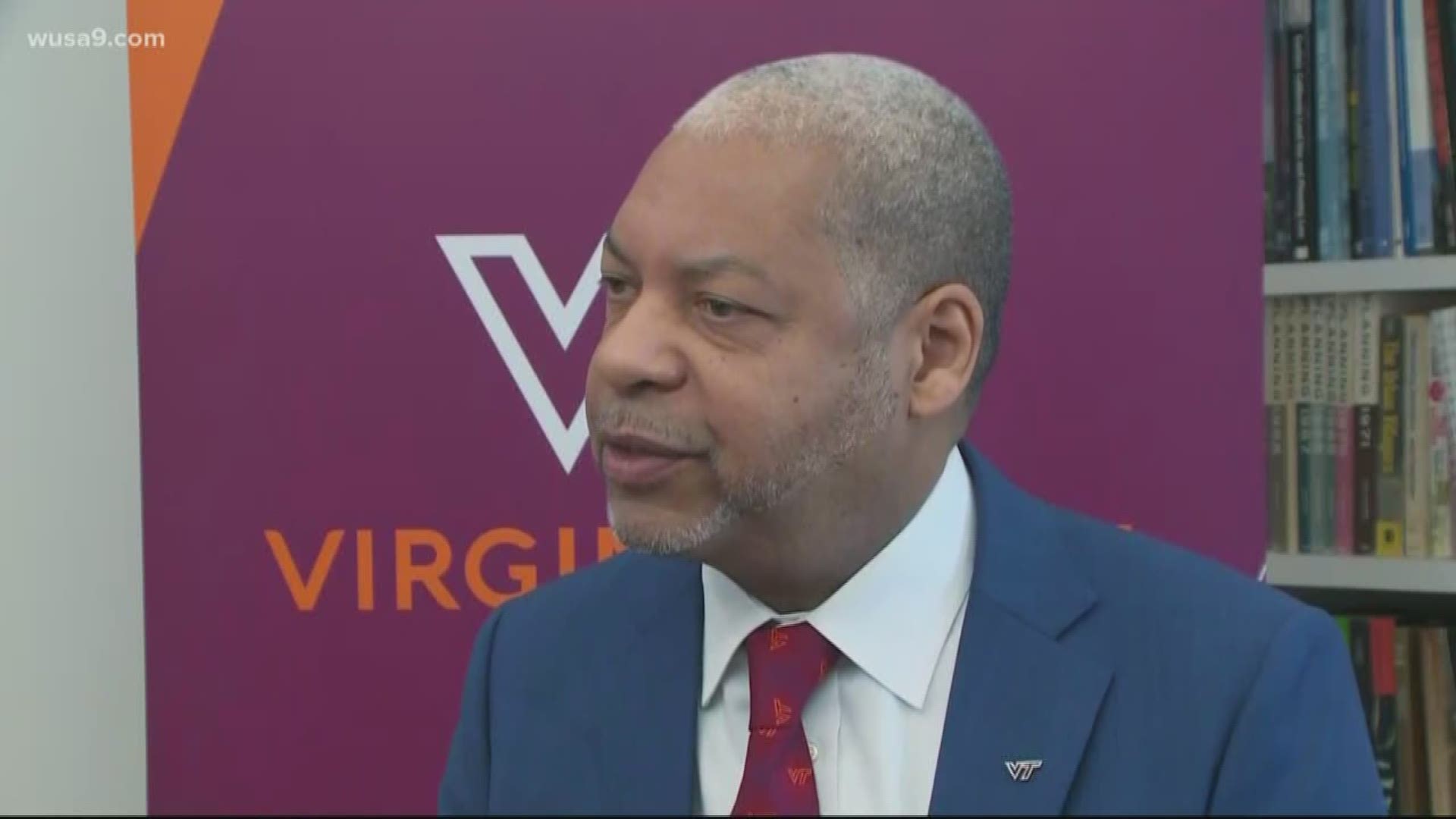ALEXANDRIA, Va. — Lance R. Collins, Dean of Engineering at Cornell University, has been selected as the inaugural vice president and executive director of Virginia Tech’s new Innovation Campus in Alexandria, Virginia Tech President Tim Sands announced Monday.
Collins, who has led Cornell’s college of engineering since 2010, was a key member of the leadership team that successfully bid to partner with New York City to build Cornell Tech, which opened its Roosevelt Island campus in 2017.
"Lance Collins is a world-class leader with impeccable credentials, a commitment to collaboration, and experience scaling up both an undergraduate student talent initiative and a new graduate campus in an urban area," President Sands said. "He’s the ideal person to build on our momentum and launch a campus in the greater Washington, D.C., area that will expand the pool of tech talent and lead our exploration of the human-computing frontier."
Collins' appointment culminates an international search for the leader of the Innovation Campus, which was announced by the university as part of the state’s successful effort to attract Amazon’s HQ2 to Northern Virginia.
Virginia Tech’s plan to build a graduate-level campus in Alexandria and to add at least 2,000 more undergraduate students studying computer science and computer engineering in Blacksburg have been cited as key reasons that Amazon opted to build its second headquarters in Arlington.
Collins, who joined Cornell in 2002 as a professor in the Sibley School of Mechanical and Aerospace Engineering, will start at Virginia Tech on Aug. 1, 2020, in advance of the inaugural class starting in the fall.
"I’m energized by the opportunity to build a campus from the ground up in the burgeoning National Landing district," Collins said. "Our inaugural students, faculty, and new and developing partners will collaborate to advance technology to meet societal needs rather than allowing technology to define our lives. Virginia Tech’s delivery team, under Founding Managing Director Brandy Salmon’s leadership, has established an innovative and effective foundation for the campus. I look forward to working with Brandy and the team to move forward aggressively and with purpose."
Dan Huttenlocher, who served as the founding dean and vice provost of Cornell Tech and is now the inaugural dean of the Schwarzman College of Computing at the Massachusetts Institute of Technology, called Collins’ appointment a significant milestone for Virginia Tech.
"Lance loves to take on big challenges and he knows how to develop and nurture partnerships that are vital to creating a new campus," Huttenlocher said. "Without his leadership in the Cornell Tech proposal to the City of New York and his subsequent support and guidance on the development of the campus, there would be no Cornell Tech."
In his role with the Cornell Tech initiative, Collins organized an effort to link fundamental research and undergraduate education on the Ithaca, New York, campus to the Cornell Tech campus in New York City, maximizing the commercialization potential of Cornell technology in the urban environment.
Collins said the Innovation Campus, located right in the heart of global capital, offers an unprecedented opportunity to take a human-centered focus to technology development while influencing the policy that regulates its use and protects the public’s right to privacy.
"I’m eager to get started," he said. "We will initiate searches for key leadership roles immediately so that we are ready to welcome our first students in August.”
The first class of Innovation Campus students will enroll in fall 2020 in the existing Virginia Tech academic space in Falls Church. The first campus building in Alexandria's North Potomac Yard is scheduled for completion in 2024, while temporary space will be brought online in the interim to begin creating the tech ecosystem for the future campus.
When complete in about 10 years, the Innovation Campus will enroll up to 750 master’s candidates and hundreds of doctoral students and postdoctoral fellows to meet the needs of the commonwealth.
As a comprehensive research land-grant institution, Virginia Tech expects to grow other essential programs in Northern Virginia and in Blacksburg to meet the broad range of needs for the commonwealth.

